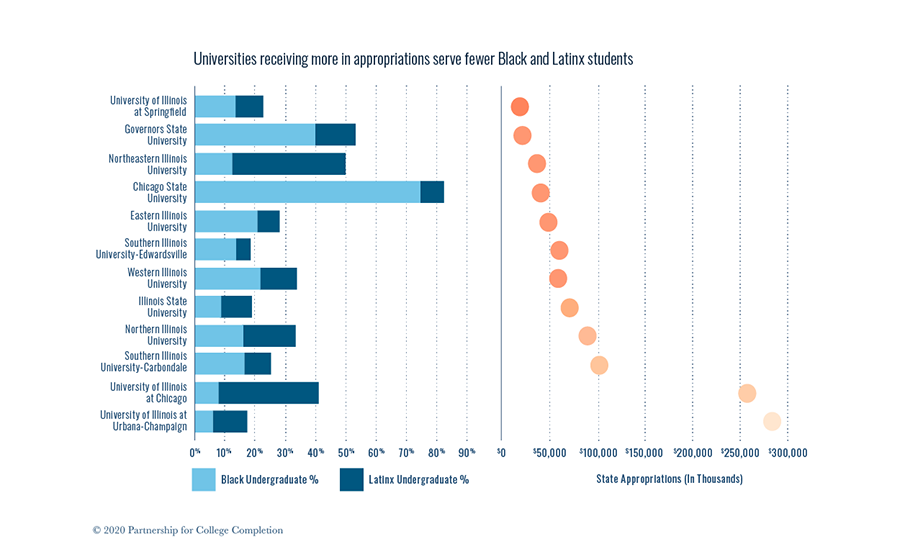As members of the Illinois Higher Education Network, we applaud Governor Pritzker in signing SB815 into law yesterday. With SB815’s creation of a Commission on Equitable Public University Funding, Illinois is a step closer toward not only having a funding model that considers what it takes to ensure institutions have the resources to adequately support students but one that targets resources to colleges disproportionately serving students from low-income households and students of color, and incentivizes better-resourced universities to ensure their student body reflects the population of Illinois.
Years of disinvestment, racial and socioeconomic disparities in access, and inequitable distribution of state funds have forced Illinois’ Black and Latinx students and students from low-income households to pay some of the highest college costs in the nation. The state’s public universities that serve greater percentages of students from low-income households and students of color are also its most financially vulnerable. Although these institutions need more funding to support students, they instead receive a fraction of the state’s annual appropriations.

The commission created by SB815 will research, model, and ultimately recommend specific criteria and approaches for an equity-based higher education funding model for Illinois’ public universities. Governor Pritzker’s signing of SB815 yesterday starts the process of bringing equity and stability to higher education funding.
An adequate, equitable, and stable higher education funding model is critical to ensuring every university can provide adequate academic, financial, and social-emotional support to improve college access, persistence, and success. Such a funding model is also critical to rebuilding a prosperous and equitable future for Illinois.
We thank Governor Pritzker for signing SB815 into law and continue to applaud Leader Kimberly Lightford and Representative Carol Ammons for their steadfast leadership on this bill.
Working together to create a more equitable higher education system, we are eager to support the Commission’s work and the much-needed transformation it is designed to spur.

